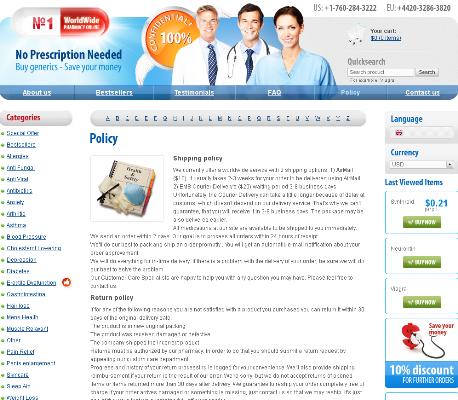Shelf Life and Storage Tips for Ventolin
Understanding Ventolin’s Expiration Date and What It Means
For anyone relying on Ventolin to manage asthma or breathing difficulties, the date printed on your inhaler is more than just fine print—it’s a crucial safety marker. Pharmaceutical manufacturers carefully determine how long Ventolin remains effective, and this is based on extensive stability testing. The expiration date ensures the medication will deliver reliable relief when you need it most.
Once past this date, there’s no guarantee your inhaler will provide the intended dose or work as expected in an emergency. Potency can degrade over time, even if an inhaler looks unchanged. Using expired Ventolin puts you at risk of uncontrolled symptoms or reduced response in critical moments, which could compromise your health.
Below is a quick reference for what the expiration date means:
| Label | What It Means |
|---|---|
| Expiration Date | The last day the inhaler is guaranteed to work as intended |
| Opened Inhaler | Use within 12 months or before expiration, whichever comes first |
Best Storage Conditions to Maximize Ventolin Freshness

Imagine the relief of knowing your Ventolin inhaler will be there, working effectively when you need it most. Achieving this starts with mindful storage habits. Experts recommend keeping your Ventolin in a cool, dry area—away from direct sunlight, steamy bathrooms, or car glove compartments that can get too hot or cold. Moisture and heat can rapidly degrade the medicine inside, so it’s best to avoid places like kitchens and windowsills.
For maximum freshness, always replace the cap after every use, protecting the mouthpiece from dust and debris. It’s also helpful to store your inhaler in its original packaging, which offers an extra shield from environmental factors. With a little foresight, you can ensure your Ventolin remains potent, reliable, and ready for action when you need relief the most.
Common Missteps That Can Shorten Inhaler Shelf Life
It’s easy to overlook small habits that can have a big impact on your Ventolin inhaler’s viability. Many people toss their inhalers into a hot car during summer or store them in the bathroom, exposing them to heat and moisture. These environments speed up chemical breakdown, making the medication less effective when you need it most.
Another frequent oversight is forgetting to replace the cap after use. Dust, lint, or accidental sprays can compromise the delivery system and contaminate the medication, further diminishing both its safety and potency. Be sure to snap the cap back in place every time.
Lastly, incorrect shaking before use—especially after long periods without use—can result in uneven doses. Always check the manufacturer’s instructions for proper priming and shaking to ensure consistent relief.
How Temperature Fluctuations Affect Ventolin Potency

Imagine placing your Ventolin inhaler next to a sunny window or in a glove compartment during a hot day. While these spots seem harmless, temperature extremes can quietly erode Ventolin’s effectiveness. When Ventolin is repeatedly exposed to heat, its active ingredient may degrade, reducing the mist's potency each time you use it—potentially leaving you with less relief during an asthma episode.
Cold temperatures aren’t much friendlier. Freezing or even storing Ventolin in a very chilly environment can alter the propellant pressure inside the canister. This not only impacts medication delivery but could potentially damage the device itself, making it unreliable when you need it the most.
To ensure you get the intended dose and the full benefit of your Ventolin, always keep it in a consistently cool, dry place—away from temperature extremes.
Recognizing When Your Ventolin May No Longer Be Safe
If your Ventolin inhaler has changed in color, consistency, or if the spray feels weaker than usual, these are red flags that it might not be safe for use. A lingering chemical or unusual odor can also signal the medication inside has deteriorated, making it less effective during an asthma attack.
Pay attention to the expiration date printed on both the inhaler and its box. Using Ventolin beyond this date can put your health at risk, as the active ingredient may no longer deliver full relief when you need it most.
| Sign | Possible Issue |
|---|---|
| Weak spray | Loss of potency |
| Change in color or smell | Contamination or breakdown |
| Past expiration date | Reduced effectiveness |
Proper Disposal Methods for Expired or Unused Ventolin
When you discover an expired Ventolin inhaler in your medicine cabinet, tossing it in the trash might seem like the easiest solution—but it’s not the safest one. Used or expired inhalers often contain trace amounts of medication and may be pressurized, which poses risks if punctured, incinerated, or disposed of improperly. This makes proper disposal both a health and environmental concern.
Pharmacies offer take-back programs where inhalers are safely collected and handled according to medical waste regulations. If returning it to a pharmacy isn't an option, contact your local waste management or recycling center to ask about hazardous household waste drop-off days. Medical waste bins and community collection events are other reliable solutions that help prevent any environmental contamination.
Avoid burning or crushing inhalers, as this can release harmful chemicals or create dangerous conditions. Not only does correct disposal protect sanitation workers and the environment, it also keeps potentially expired medication out of reach from children and others who may accidentally misuse it. Taking these simple steps ensures you’re responsibly closing the chapter on each inhaler used.

